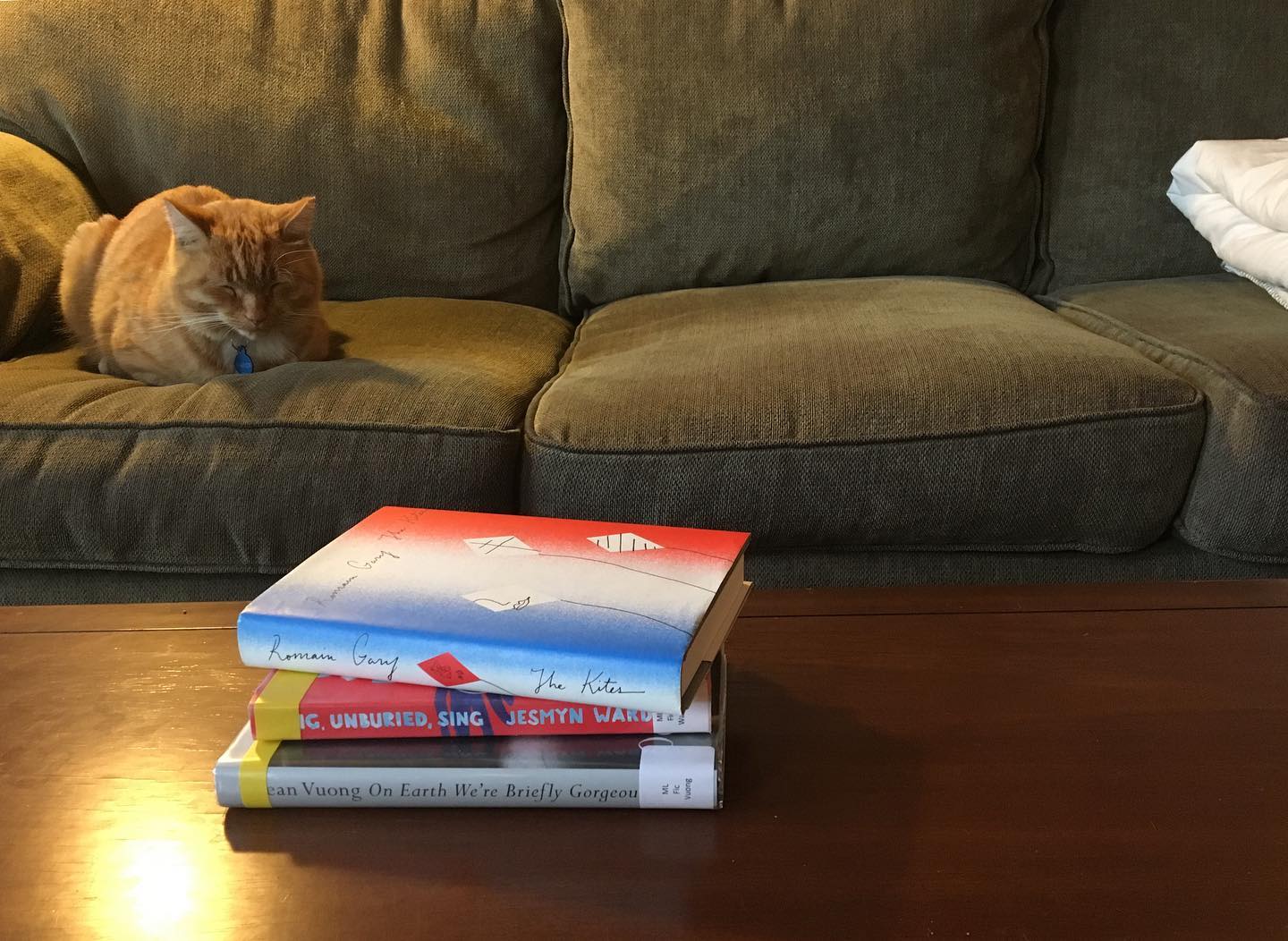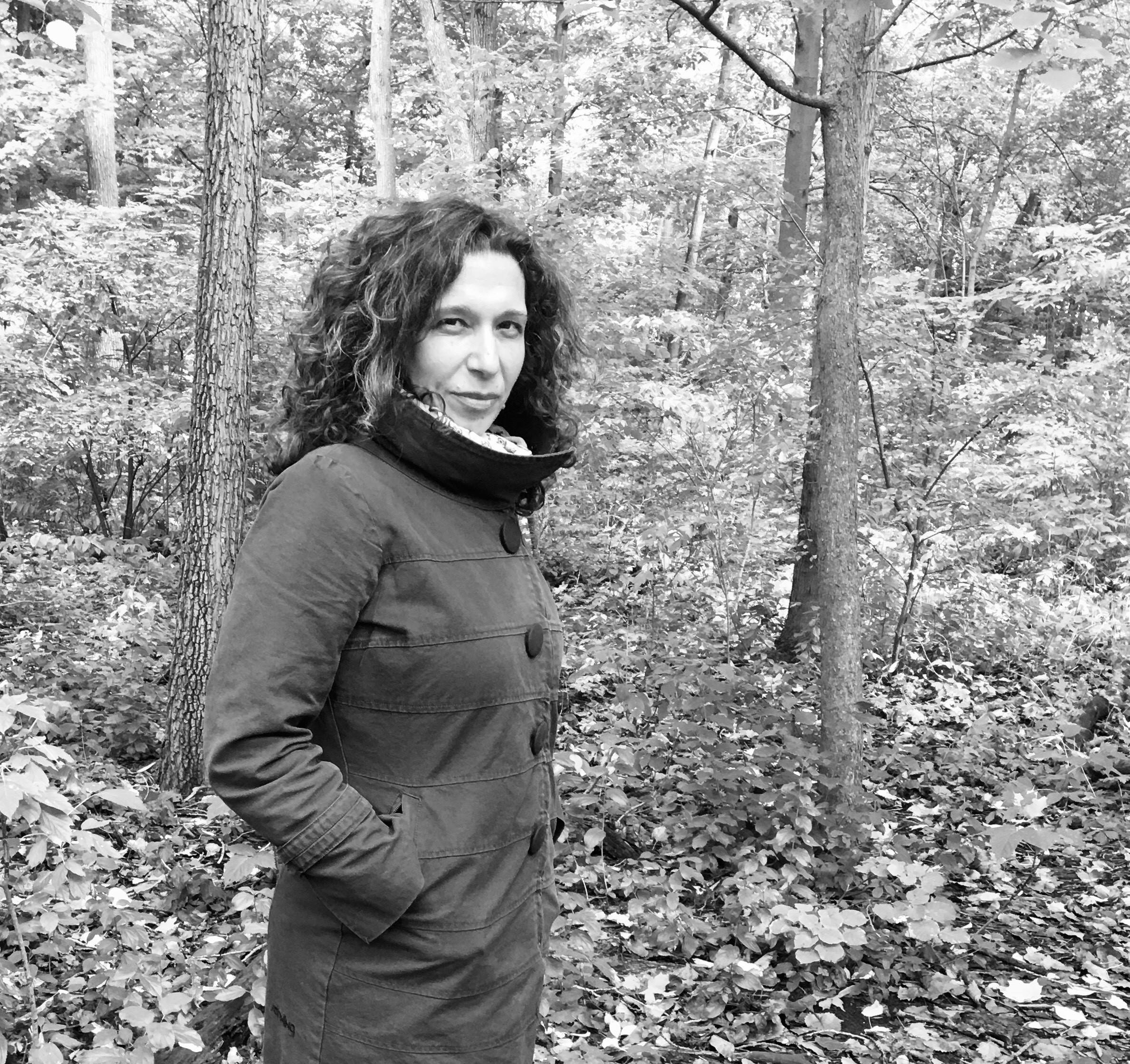What (and Where) is Sivan Slapak Reading?
By Sivan Slapak
A couple of weeks ago, which feels like an eon, my idea was to dedicate this post not only to what I’m currently reading, but when I read, which have become inextricably linked. Although life has changed drastically since then, as I emerge from a second weekend of self-isolation, it feels relevant. Shabbat—those twenty-five hours between Friday sundown and Saturday night—is still my reading day.
Of course, during the week I may graze through a few pages. But between work-reading, social media and the news, like many of us I’m mainly imprisoned by screens. And the reading I do on them is for the most part distracted scrolling and clicking. (This week amplify that a millionfold and add ‘panicked and exhausted.’)
Observing the Jewish day of rest as I do comes with many details, but they all boil down to creating an ‘island in time’, where the noise and anxieties of daily life are muted. For decades I’ve appreciated both the social aspect and the quiet schedule of Shabbat. But as our devices have become pervasive and – for me – endlessly consuming, saying goodbye to electronics for a day has been what I value most.
To the rituals: Though unfortunately shuttered, as most places are for the time being, for years my Shabbat prep has included visiting the library across from work or the little indie bookstore in my neighbourhood (going strong for 30 years!) to ensure I’m well set up.

At sunset, with screens turned off, candles lit, reading glasses on (they’re new -ack!) I stretch out on the sofa with a book in hand, cat at feet, (probably wine in glass,) knowing that there are no emails to receive and many uninterrupted hours to read. This moment has always filled me with the sense that I lack for nothing, that all is well in the world.
Now the world is not well. And after a week of prying myself away from news articles on the computer only to switch on the radio, I did wonder what it would be like to ‘go off the grid’ again come Friday night.
Well, it was good. The silence was an especially dramatic contrast to a week of continuous, overwhelming updates. It was also a lift after feeling quite down about living alone right now, when I’m usually pretty content in my apartment. Putting away the computer and phone (yes, in an emergency I’d pick up) did a lot to calm me, and reading on the couch was not another reminder that I’m by myself in a crisis, but a familiar delight.
For me, that is what Shabbat is for.
Here’s the book I read last Shabbat:
Olive Kitteridge, by Elizabeth Strout, which won the Pulitzer in 2009. I’ve only discovered Strout recently, and I think she’s a brilliant writer. This book is a series of connected stories that all take place in fictional Crosby, Maine, arranged around the character of Kitteridge, who, depending on the story, is central or a passing figure. To me, the narratives are reminiscent of Alice Munro; the similar small-town setting, and Strout’s skilled descriptions, rich but economic. And the way she allows us to inhabit (often repressed or questionable) characters with total empathy, offering emotional insights that are so clear and obvious, but only after she’s said them.
I’m feeling on edge this week as it is, but this book held my heart in a fist. It was Strout’s resonant examination of relationships that did it: how complex and unfathomable people are, how much we can go through, how connected we become in this precarious condition we call life.
It was a comfort to be reminded of what reading—and writing—is for.

Sivan Slapak works in Montreal’s arts and culture sector and towards completing a collection of short stories. Still-delighted past-winner of TNQ’s Peter Hinchcliffe Fiction Award.
Headshot by Leslie Schachter. Cover photo by Ehud Neuhaus on Unsplash.

